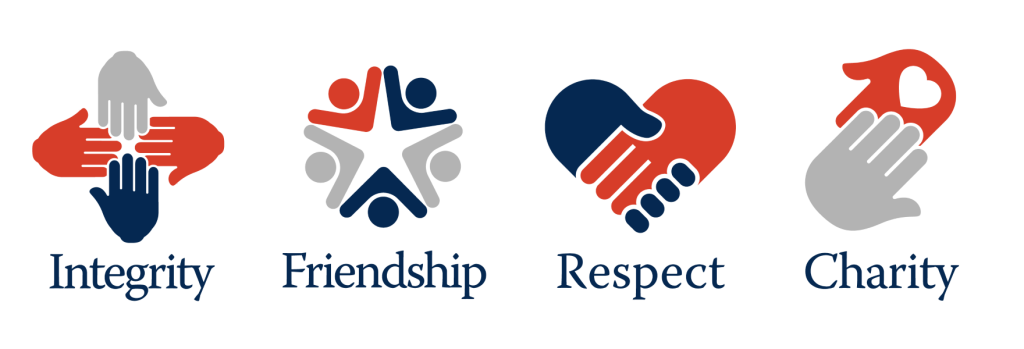Many are attracted by the valuable work that the movement performs in raising money for charity. A proportion of these funds are used to assist Freemasons and their dependents in times of need, but the majority goes to non-Masonic charities e.g. local, national and international. Freemasons also assist the community in more direct ways, such as carrying out voluntary work.
Others become Freemasons because of the unique camaraderie it provides. Visit a Masonic lodge anywhere in the country – or indeed, the world – and you are given a warm welcome.
If Freemasonry has nothing to hide, why the mystery?
The ‘mysteries’ that are revealed to members as they progress are nothing more sinister than sound advice that helps them to lead a balanced life, like thinking about the welfare of others. Similarly, Masonic passwords are simply keys to the doors of the different levels within Freemasonry. Learning these principles on a step by step basis makes them easier to absorb and understand. Masonic ceremonies are like short morality plays in which members play different parts. Like any form of theatre, it demands the learning of words and the movements on stage.
You don’t need the acting skills of a West End star to become a Freemason.
In the convivial atmosphere of a Masonic meeting, members soon learn to relax and enjoy taking part in something rather special. It’s a place where everyone can be themselves and contribute in a way that suits their personality. Many members actually find that learning and performing these rituals is a useful programme of self development especially building self confidence in speaking in front of others. For those that want to do it, Freemasonry also provides the opportunity to practise after-dinner speaking with a totally friendly audience.
Freemasons are always asked if there is preferential treatment and gain between fellow masons. Yes, there is. Freemasonry will make you rich, but isn’t in £££’s, it’s in experience.
It’s in joining a group of likeminded, decent, principled people of the same values, who work together to help those less fortunate than ourselves, at the same time enjoying what masonry offers. In a world of mass media and mass suffering, famine and tragedy, Freemasonry provides a platform to react for fundraising when disaster strikes. Freemasons do give, but only what they can genuinely afford.
The majority of lodges in the Province of London meet four times a year. The formal part of the proceedings (the ceremonies) usually start towards the end of the afternoon and are followed in the evening by a dinner and speeches. There are also weekly ‘instruction meetings’ where members learn more about the principles of Freemasonry, and how to master the rituals performed in the ceremonies.
Freemasons also take great pleasure in visiting lodges other than their own, making new friends and seeing different traditions followed. Like any hobby you can’t get anything out without putting something in and it’s as time consuming as you want it to be…….but we do think that sometimes our families may want to see us occasionally.

